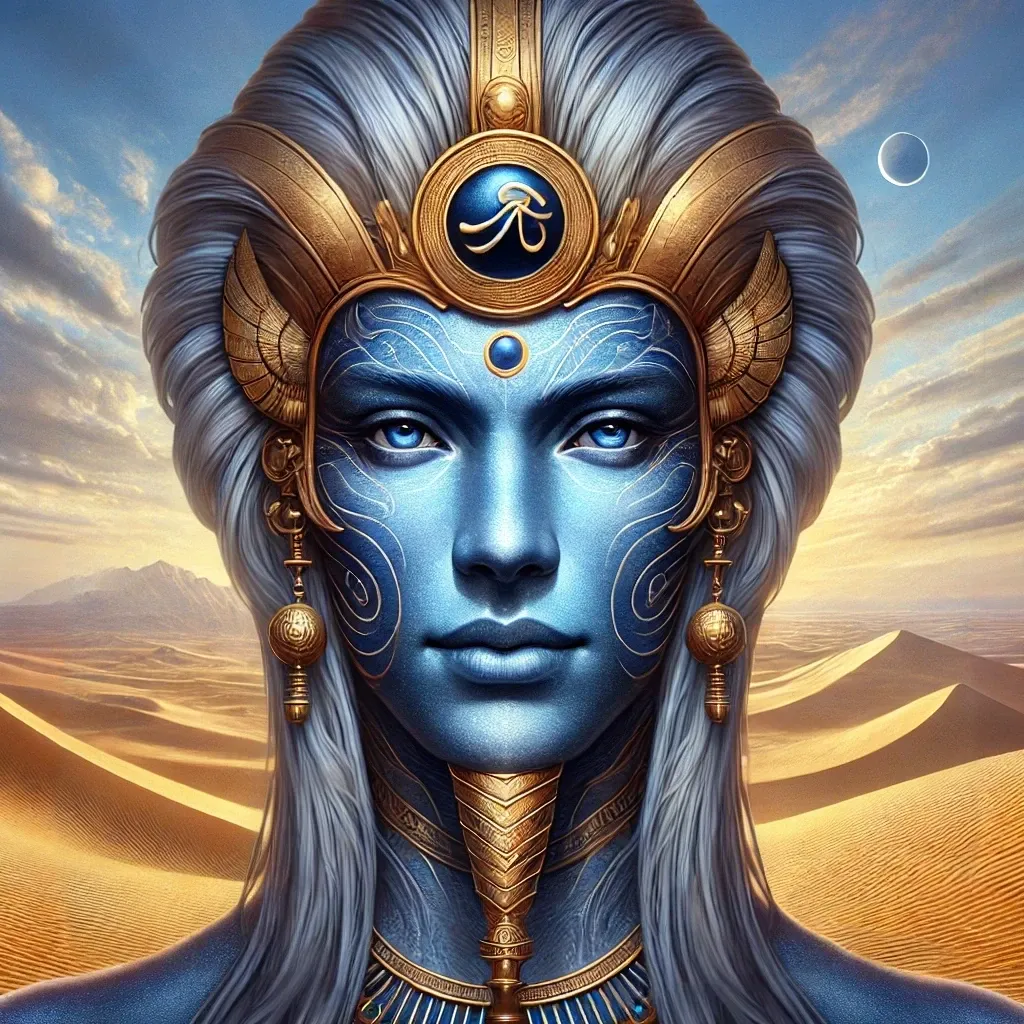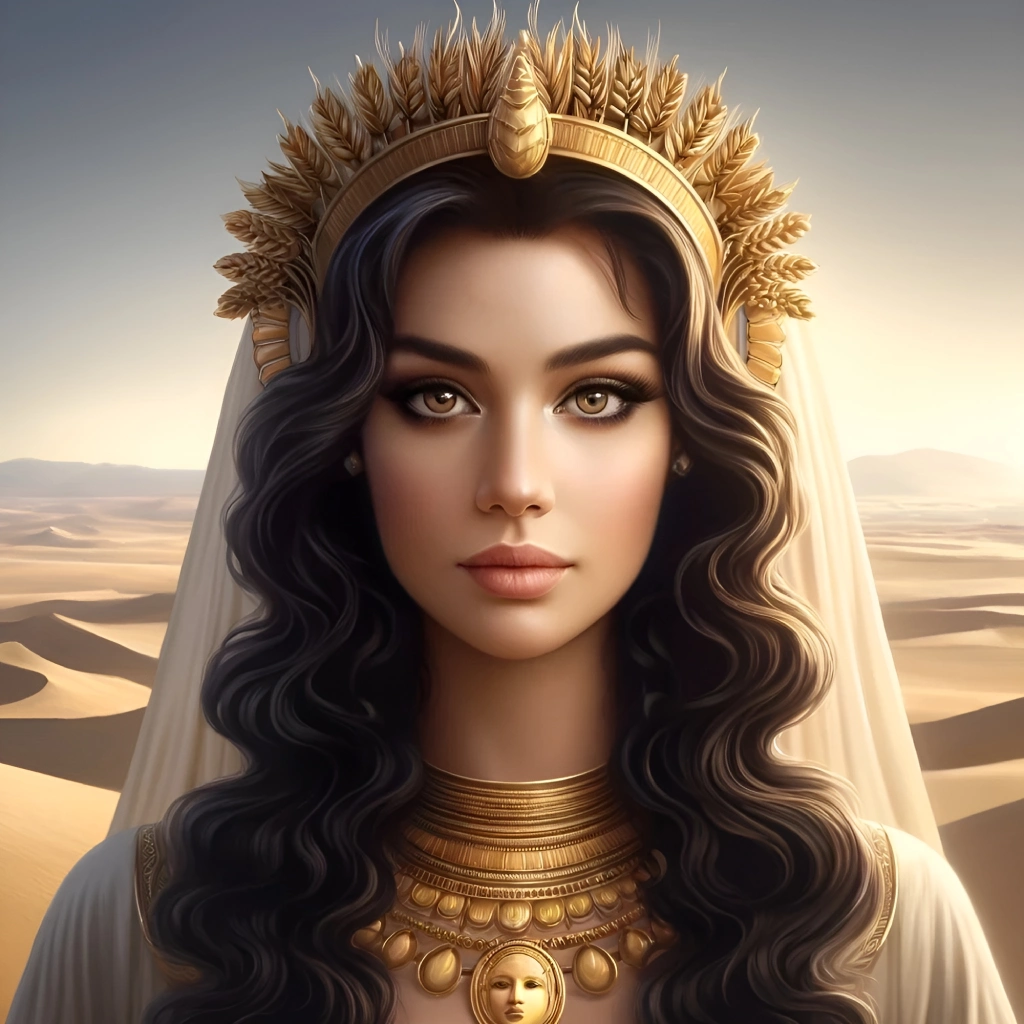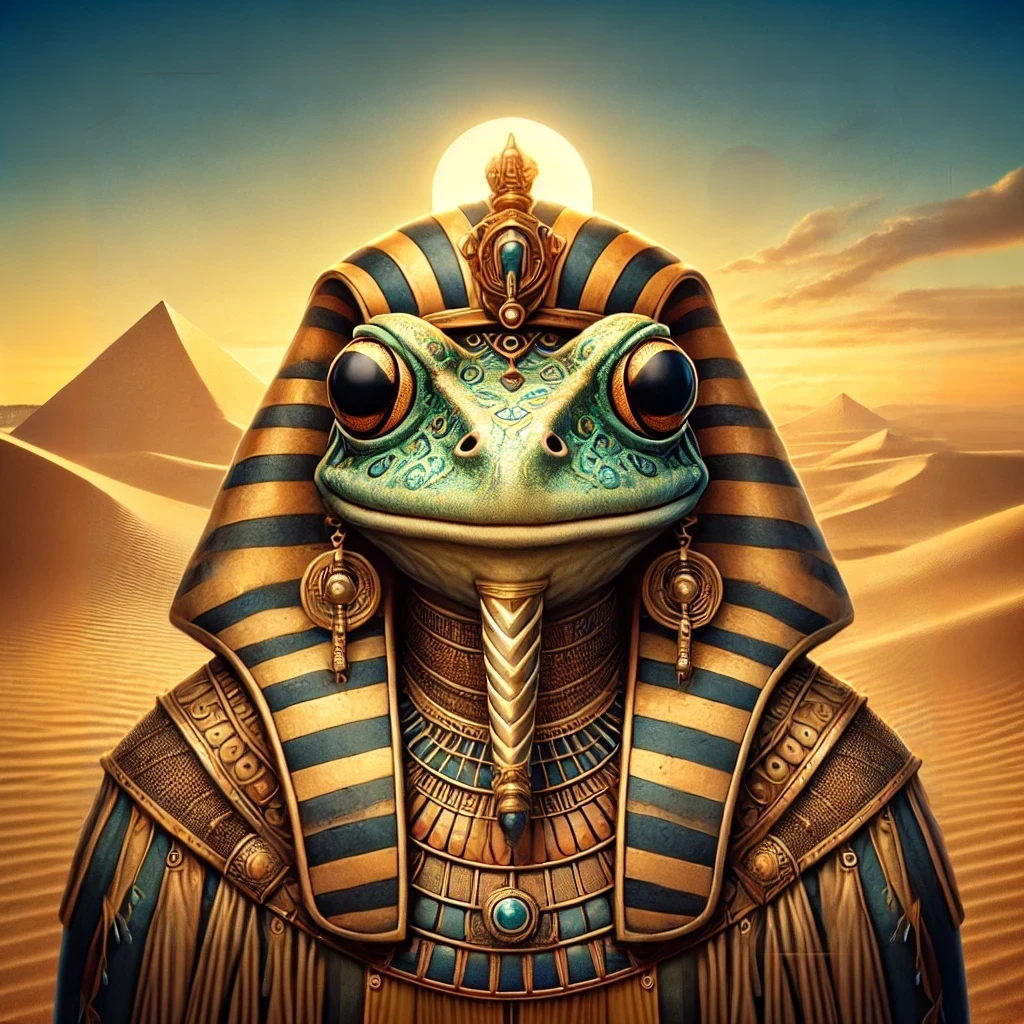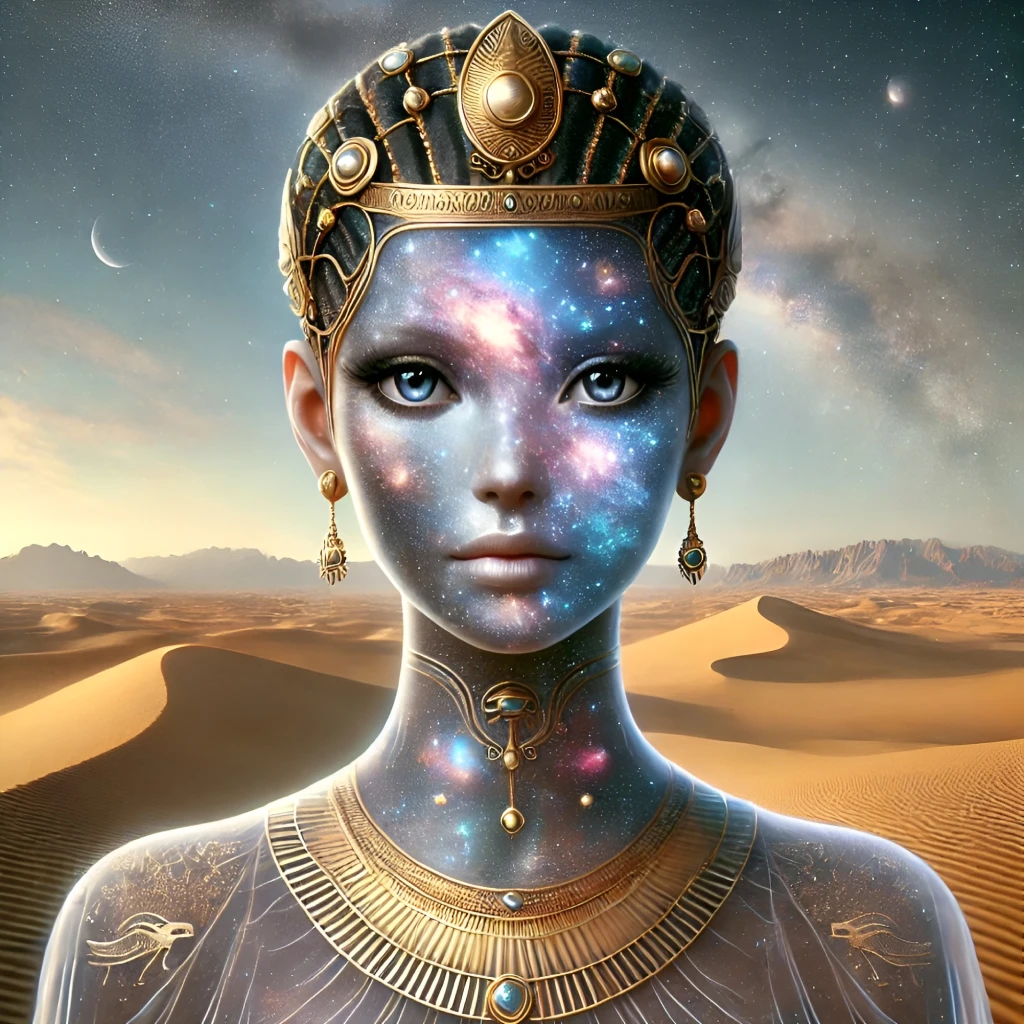The ancient Egyptian deity Nun, also known as Nu, represents the primordial waters of chaos from which creation emerged. Referred to as the “Father of the Gods” and the “Infinite One,” this enigmatic figure embodies the boundless expanse that predated the ordered universe. Inscriptions and ancient texts often describe him as an abstract force rather than a personified god, emphasizing its foundational role in Egyptian cosmology. The name itself, “Nun,” translates to “watery abyss“.
Origins
Historical Roots
Nun’s origins trace back to the earliest Egyptian creation myths, particularly those centered in Heliopolis and Hermopolis. These traditions portray the deity as an integral part of the universe’s birth, existing before time and space. In Heliopolitan cosmogony, he was the inert, formless ocean from which the sun god, Ra, emerged to create order. Similarly, the Hermopolitan tradition associates this ancient being with the Ogdoad, a group of eight deities embodying primordial elements like darkness, moisture, and infinity.
Appearance
Visual Depictions
Unlike many Egyptian gods who were vividly personified, Nun rarely appeared in detailed visual art. When depicted, the primordial waters were often represented by a vast, undulating body of water or a male figure holding up a celestial bark. The lack of consistent anthropomorphic representations emphasizes the deity’s abstract nature, symbolizing an ungraspable, ever-present force.
Abilities
Cosmic Powers
The “Infinite One” wielded the power to sustain and engulf all creation. Nun was seen as both the origin and potential undoing of the cosmos, representing the fragile balance between chaos and order. In times of cosmic crisis, Egyptian texts invoke the deity’s waters as a potential source of renewal or destruction.
Role in Creation
His role in creation myths was pivotal. As the primordial ocean, this deity served as the birthplace of the sun god and other elements of the ordered universe. The waters are often described as both nurturing and unpredictable, embodying duality.
Myths
Emergence of Ra
One of the most prominent myths involving Nun is the emergence of the sun god, Ra, from the watery abyss. This act symbolizes the triumph of light and order over darkness and chaos. The texts often describe the deity’s role as passive, providing the fertile ground from which the creative forces could rise.
The Deluge
In certain late-period myths, his waters are linked to catastrophic floods meant to cleanse the earth of corruption. These tales underscore the duality of the primordial ocean—capable of both nurturing life and unleashing destruction.
Symbolism
Representations
Nun symbolizes the boundless, unformed state of the universe. Associated objects include:
- Water: The primary symbol of the deity.
- Lotus Flowers: Emerging from the primordial waters, these plants represent creation and rebirth.
- Frogs and Serpents: Animals connected with the Ogdoad, reinforcing themes of primordial chaos.
Duality
He encapsulates duality—a source of life and destruction, embodying potential and uncertainty.
Relationships
Connections to Other Deities
As the “Father of the Gods,” Nun is intrinsically linked to numerous Egyptian deities. Ra, the sun god, owes his very existence to the primordial waters. The Ogdoad—a collective representation of chaotic forces—also draws heavily from the conceptual framework of him.
Rivals and Conflicts
Though not depicted as having direct rivals, his chaotic essence contrasts sharply with Ma’at, the goddess of order. This juxtaposition highlights the eternal struggle between chaos and cosmic balance in Egyptian mythology.
Trivia
- The Coffin Texts often invoke his waters as a protective force for the deceased, ensuring safe passage to the afterlife.
- In some artistic depictions, he appears holding the solar barque, reinforcing the connection to Ra and creation.
- The deity’s abstract nature meant that temples dedicated specifically to him were rare or nonexistent.
- The concept of primordial waters influenced later creation myths in the Mediterranean and Near East.
- His association with cyclical destruction and renewal mirrors similar themes in Hindu and Mesopotamian mythology.



